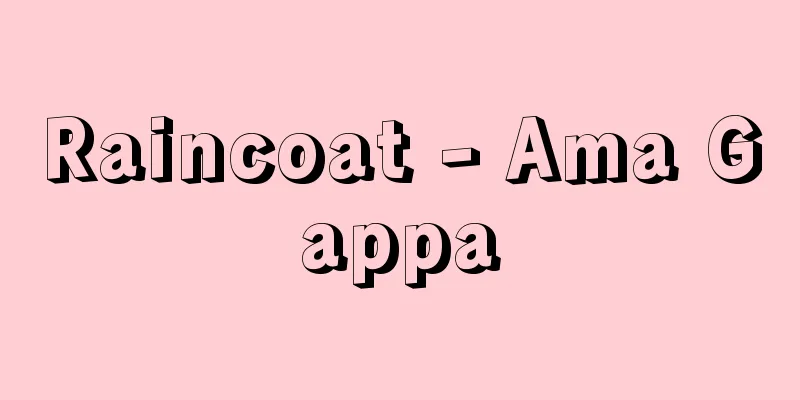burla

|
...The word is derived from the Italian word burla, which means to make fun of, and refers to literary works that make fun of the conventions of existing genres or the characteristics of existing works. It is particularly popular in England, and can be found in all genres, such as poems such as S. Butler's Hudibras (1662, 63, 78) and A. Pope's The Rape of the Hair (1712), and novels such as H. Fielding's Shamilla (1741) and Joseph Andrews (1742), but is particularly common in plays. *Some of the terminology that mentions "burla" is listed below. Source | Heibonsha World Encyclopedia 2nd Edition | Information |
|
…からかうことを意味するイタリア語〈ブルラburla〉から生まれた言葉で,既存のジャンルの約束事や既存の作品の特徴を茶化した文学作品を指す。イギリスでとくに盛んで,S.バトラーの《ヒューディブラス》(1662,63,78)やA.ポープの《髪の毛の略奪》(1712)のような詩,H.フィールディングの《シャミラ》(1741)や《ジョゼフ・アンドルーズ》(1742)のような小説など,あらゆるジャンルにわたるが,とりわけ劇に多い。… ※「burla」について言及している用語解説の一部を掲載しています。 出典|株式会社平凡社世界大百科事典 第2版について | 情報 |
>>: Burji Mamluk (English spelling)
Recommend
《Badā'i 'al-Zuhūr》 (English notation) BadaialZuhur
…He grew up in a unique family environment, with ...
Trade silver
〘 noun 〙 A silver coin used for overseas trade set...
Amount of substance
The mole is the amount of a substance expressed as...
Álayabijñāna - Álayabijñāna
... Next, regarding the "non-self of all phe...
God, Grave, Scholar
…He lived in the United States from 1954 until hi...
Girl of the Alps
...This can be said to be a reflection of the rea...
European Union - yoropparengou (English spelling) European Union
A European regional integration organization esta...
Dentsu Inc.
Japan's largest advertising company. Nippon Ad...
Ogonori (English spelling) sewing thread
A red alga, a seaweed of the Gracilaria family. I...
Roget, PM
…In Europe, books of this type began to appear in...
Equus ferus ferus (English spelling) Equusferusferus
...a medium-sized horse with a grey body and a bl...
Pramoedya Ananta Toer
1925‐ Indonesian writer. Born in Central Java. He ...
Leda - Leda (English spelling)
A woman who appears in Greek mythology. Daughter ...
Klosterneuburg
…After passing Krems, we enter the Vienna Basin, ...
Patni Debate - Patni and Ron
A debate held at a general meeting of the Parliame...









